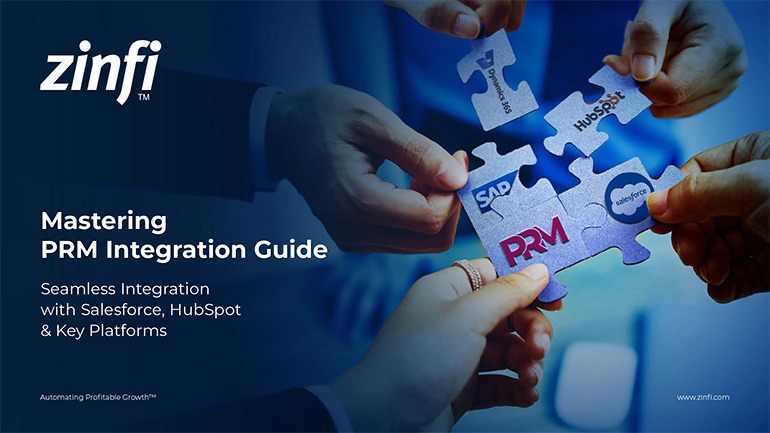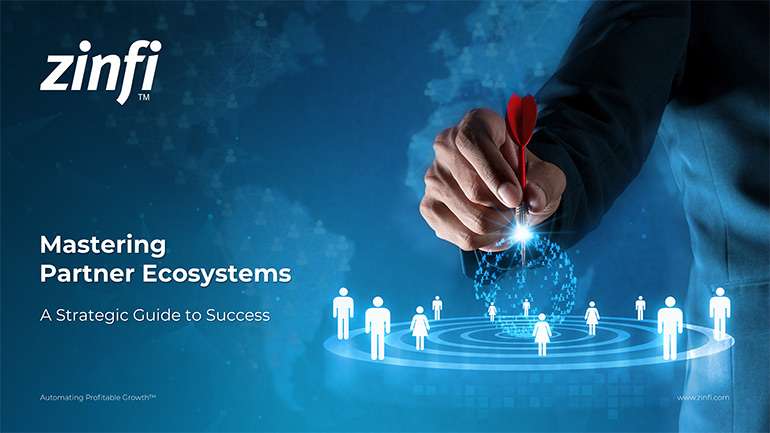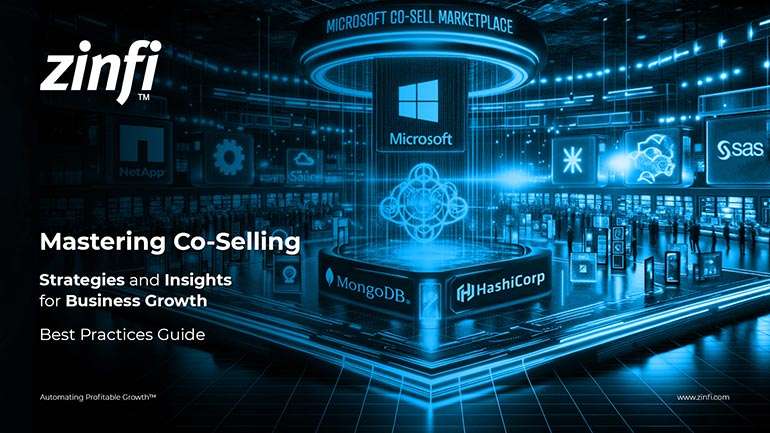Best Practices Articles

The Paradox of MDF Marketing
Market development fund (MDF) marketing is a major source of activity for organizations selling through the channel. Over the past few decades, MDF marketing has become a lot more organized for most companies; however, getting true return on investment (ROI) from these programs is still a bit of an art, even a mystery. In this article, we will explore some of the paradoxes of MDF marketing.
Before we take a deep dive, let’s step back for a moment and consider how market development funds are typically deployed. Most organizations selling through the channel tend to take somewhere between 0.5% and 2.0% of their topline revenue and allocate it to co-marketing activities. (The classic example of this is Intel Inside.) In many cases, these co-marketing activities are called contra-revenue activities, and they are not included in the calculation of the net revenue of an organization. Now, in setting aside this money for market development funds, vendors tend to create marketing programs for their channel partners. These marketing programs range from partner training and end-user marketing events to collateral printing, advertising and various other end-user-facing marketing and sales activities.
The key challenge in MDF marketing, however, is figuring out what works and what doesn’t work. Most of the investments tend to happen in relatively small chunks, yet successful marketing often requires a critical mass investment. That’s one key reason most MDF marketing programs don’t really work. Vendors typically spend a lot of effort trying to figure out why one particular program didn’t work, but in the process they tend to miss the bigger picture. One way of avoiding this is to have a relatively large number of partners replicate the same program across multiple parts of a country. This way, the overall program reaches critical mass and partner-specific execution variabilities can be eliminated.
In addition to figuring out overall ROI from an MDF marketing program, replication and scale across multiple countries also remain a challenge for most vendors. Most organizations lack a reliable infrastructure that can take a successful program from one country and replicate it in other countries. As a result, in many cases companies will come up with different programs for each market. This can lead to significant reduction in ROI, because successful programs don’t get scaled, and most MDF marketing activities end up in a sort of permanent trial-and-error mode.
Perhaps the biggest barrier to ROI in MDF marketing is the tendency of many organizations to take a short-term approach, rolling out MDF marketing programs tied to fiscal quarters. This is often driven by the organization’s need to market certain products and services. These efforts typically result in poor execution of a bad idea—a true double whammy. Do you think I am being overly critical? Maybe, but hear me out. Assuming you have a broad channel, it typically takes half the channel about six months to find out about a program, provided a vendor is aggressively pushing it. There are just too many programs and too many activities to choose from. Channel marketing teams tend to be driven by channel sales objectives, and forget that marketing is not a quarterly initiative. It’s difficult to build momentum for a potentially successful program when you fail to adopt a long-term view of your marketing efforts.
This leads to the ultimate paradox of MDF marketing: The overall cost of MDF marketing tends to be as large if not larger than below-the-line marketing, yet MDF too often fails to deliver results at a scale. It can only do so if the vendor gets three things right: 1) it selects a scalable global program, 2) it runs the program over an extended period of a time and includes a significant number of partners, and 3) it looks for adjacent, similar programs to scale on the momentum. We have seen repeatedly that when companies align these three requirements, they are finally able to harness the true power of MDF marketing and overcome the paradox of excellence.
Best Practices Guidebook
 Winning with Partner Advisory Councils: Best Practices for Partner Engagement & Growth
Winning with Partner Advisory Councils: Best Practices for Partner Engagement & GrowthDownload Guide
 The Future of Partner Ecosystems Best Practices
The Future of Partner Ecosystems Best PracticesDownload Guide
 The AI Revolution: How Technology and Talent are Shaping the Future
The AI Revolution: How Technology and Talent are Shaping the FutureDownload Guide
 Top 105 Partner Management Metrics that Matter Best Practices
Top 105 Partner Management Metrics that Matter Best PracticesDownload Guide
 Mastering PRM Integration Best Practices
Mastering PRM Integration Best PracticesDownload Guide
 Building a Sales Partner Portal with Salesforce Best Practices
Building a Sales Partner Portal with Salesforce Best PracticesDownload Guide
 Building and Managing Partner Ecosystems Best Practices
Building and Managing Partner Ecosystems Best PracticesDownload Guide
 Mastering Co-Marketing and Co-Selling Best Practices
Mastering Co-Marketing and Co-Selling Best PracticesDownload Guide
 Transforming Partner Ecosystems Best Practices
Transforming Partner Ecosystems Best PracticesDownload Guide
 Mastering Partner Ecosystems Best Practices
Mastering Partner Ecosystems Best PracticesDownload Guide
 Mastering Partner Onboarding Best Practices
Mastering Partner Onboarding Best PracticesDownload Guide
 Partner Ecosystem Management Best Practices
Partner Ecosystem Management Best PracticesDownload Guide
 B2B Marketing in the Age of Intelligence Best Practices
B2B Marketing in the Age of Intelligence Best PracticesDownload Guide
 Multi-Partner Co-Selling Best Practices
Multi-Partner Co-Selling Best PracticesDownload Guide
 A Guide to Enhance Channel Sales Efficiency
A Guide to Enhance Channel Sales EfficiencyDownload Guide
 Mastering Affiliate Marketing Best Practices
Mastering Affiliate Marketing Best PracticesDownload Guide
 The Ultimate Guide to Channel Partner Management
The Ultimate Guide to Channel Partner ManagementDownload Guide
 Top 10 Trends in 2024 Partner Relationship Management
Top 10 Trends in 2024 Partner Relationship ManagementDownload Guide







